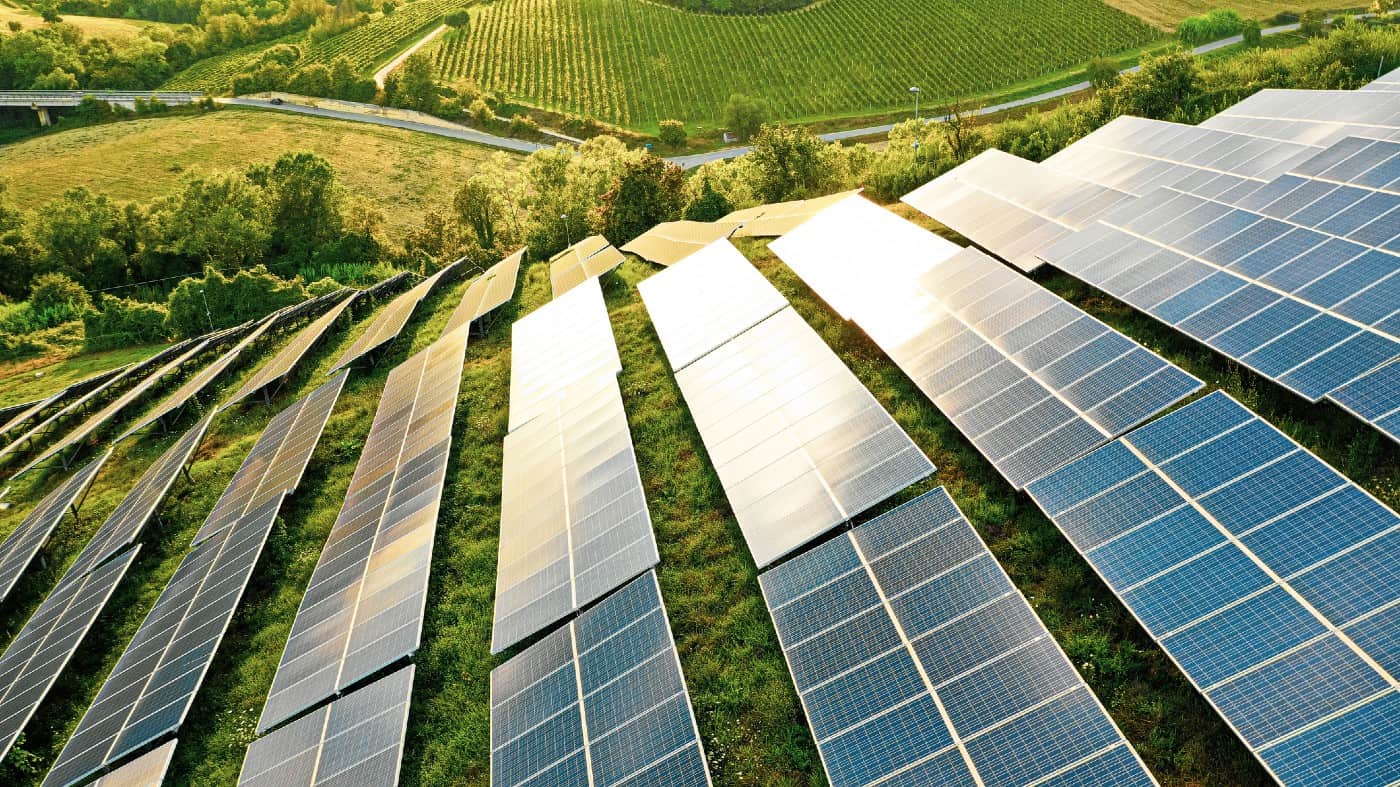I’ve been keeping my eye on iShares Global Clean Energy ETF (LSE: INRG) for some time now. Overall, it’s had a terrible 12 months and a poor start to 2022. Since last February, the fund’s price is down by around 35% and year-to-date it has fallen by just over 13%. However, I’m looking at whether it might still be a good long-term investment for my portfolio.
iShares Global Clean Energy ETF
This exchange traded fund (ETF) aims to track the performance of the S&P Global Clean Energy Index. It tracks the performance of companies in the relevant sector, while also taking into account the carbon footprint of these companies.
This fund is large at over $4.5bn, has been going for some time (since 2007) and has good trading volume. I think the ongoing charge of 0.65% is reasonable. It’s also well diversified across countries and renewable energy sectors.
For example, one of its largest holdings is Enphase Energy, accounting for just under 8%. This is a solar energy company, which among other things, produces a critical component converting solar energy into electricity. Another interesting holding is Plug Power. This is a US firm involved in the development of hydrogen fuel cells with the goal of using these to replace batteries, for example in electric cars.
The outlook
Despite the recent poor performance of the price of this ETF, over the long term, I believe there are reasons to be optimistic.
First, I see an increase in the number of holdings in the fund as a good thing. This is primarily because a wider spread of firms should mean the ETF is more robust. If one or two of the companies fail, it shouldn’t hurt it too badly overall.
Second, green energy is likely to be an increasingly important part of global energy production. Finally, this is an ethical investment sector and will probably benefit from government support across the globe over the next decade. Indeed, renewable energy investment is vital if the world is going to achieve the goals of limiting global warming and tackling climate change.
However, there are near-term risks. 2022 might see the continued dominance of traditional energy companies. It’s possible oil and gas prices will rise further especially if the Russia-Ukraine tensions escalate. This is likely to increase the share prices of these firms, whose profits heavily rely on the value of these commodities. In this scenario, we might see money move out from renewable energy stocks like those in this ETF in favour of fossil fuel firms. That is likely to hurt the price of the fund further.
Therefore, for my own portfolio, it’s still too uncertain for me to invest. I’m happy to sit on the fence for the time being and revisit iShares Global Clean Energy ETF in a few months. In the meantime, I will keep looking for other opportunities.







